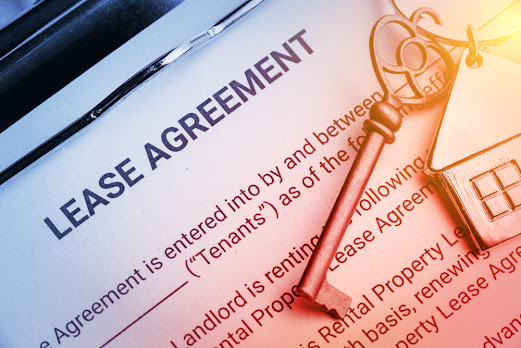How to Buy a House: A Comprehensive Guide to Navigating the Real Estate Market
How to Buy a House: A Comprehensive Guide to Navigating the Real Estate Market
1. Assessing Your Financial Readiness
Before diving into the world of real estate, how can I assess my financial readiness to buy a house?
Assessing your financial readiness involves scrutinizing your credit score, evaluating your current financial situation, including income, debt-to-income ratio, and savings. Understanding your financial standing will help you set a realistic budget for the home-buying process.
2. Establishing Your Home Buying Criteria
What factors should I consider when establishing my home buying criteria?
When creating your criteria, consider factors such as location, neighborhood amenities, school districts, and proximity to your workplace. Prioritize your needs over wants, enabling you to narrow down your options and make an informed decision when you start house hunting.
3. Obtaining Pre-Approval for a Mortgage
Why is obtaining pre-approval for a mortgage important before starting the house hunt?
Obtaining pre-approval for a mortgage is crucial as it strengthens your position as a serious buyer and helps you determine your price range, streamlining your search for the perfect home. This involves a thorough assessment of your financial documents by a lender.
4. Engaging a Knowledgeable Real Estate Agent
How can a knowledgeable real estate agent assist in the home-buying process?
A knowledgeable and experienced real estate agent can provide valuable insights, access to exclusive listings, and expert negotiation skills to secure the best possible deal. Collaborating with a reliable agent can make a significant difference in your home-buying journey.
5. Conducting Thorough Property Inspections
Why is conducting thorough property inspections important before finalizing a purchase?
Conducting thorough property inspections is essential as it reveals any hidden issues with the property. Engage a certified home inspector to assess the structural integrity, plumbing, electrical systems, and other crucial aspects of the property. Their expertise can help you make an informed decision before finalizing the purchase.
6. Making an Offer and Negotiating
What are the key steps in making an offer and negotiating with the seller?
Once you find a house that aligns with your criteria, work with your real estate agent to craft a compelling offer that considers market conditions and the property's value. Be prepared for negotiations with the seller, as this is a customary part of the buying process. Patience and flexibility are key during this stage.
7. Reviewing the Purchase Agreement
What should I consider when reviewing the purchase agreement?
The purchase agreement outlines the terms and conditions of the sale. Review it meticulously, seeking legal counsel if necessary, to ensure you understand and agree to all the terms laid out. Pay particular attention to contingencies, financing details, and the closing timeline.
8. Finalizing the Mortgage and Closing the Deal
What are the final steps in the home-buying process, and what should I expect during the closing?
With the offer accepted, you will need to finalize the mortgage process. Work closely with your lender to gather all the required documentation and complete the underwriting process. Once the loan is approved, you're ready for the closing. During the closing, all necessary paperwork is signed, and the property officially changes hands.
Conclusion
Buying a house is an intricate process that demands careful planning, analysis, and guidance. By assessing your financial readiness, establishing clear criteria, enlisting the help of a qualified real estate agent, and conducting due diligence during inspections, you can confidently navigate the real estate market. Remember, patience and thoroughness are vital as you take this exciting step towards becoming a homeowner. Armed with the knowledge from this comprehensive guide, you can make well-informed decisions and find the perfect place to call your own.
Frequently Asked Questions (FAQs) about Buying a House
Q: How can I assess my financial readiness to buy a house?
A: Assessing your financial readiness involves scrutinizing your credit score, evaluating your current financial situation, including income, debt-to-income ratio, and savings. Understanding your financial standing will help you set a realistic budget for the home-buying process.
Q: What factors should I consider when establishing my home buying criteria?
A: When creating your criteria, consider factors such as location, neighborhood amenities, school districts, and proximity to your workplace. Prioritize your needs over wants, enabling you to narrow down your options and make an informed decision when you start house hunting.
Q: Why is obtaining pre-approval for a mortgage important before starting the house hunt?
A: Obtaining pre-approval for a mortgage is crucial as it strengthens your position as a serious buyer and helps you determine your price range, streamlining your search for the perfect home. This involves a thorough assessment of your financial documents by a lender.
Q: How can a knowledgeable real estate agent assist in the home-buying process?
A: A knowledgeable and experienced real estate agent can provide valuable insights, access to exclusive listings, and expert negotiation skills to secure the best possible deal. Collaborating with a reliable agent can make a significant difference in your home-buying journey.
Q: Why is conducting thorough property inspections important before finalizing a purchase?
A: Conducting thorough property inspections is essential as it reveals any hidden issues with the property. Engage a certified home inspector to assess the structural integrity, plumbing, electrical systems, and other crucial aspects of the property. Their expertise can help you make an informed decision before finalizing the purchase.
Q: What are the key steps in making an offer and negotiating with the seller?
A: Once you find a house that aligns with your criteria, work with your real estate agent to craft a compelling offer that considers market conditions and the property's value. Be prepared for negotiations with the seller, as this is a customary part of the buying process. Patience and flexibility are key during this stage.
Q: What should I consider when reviewing the purchase agreement?
A: The purchase agreement outlines the terms and conditions of the sale. Review it meticulously, seeking legal counsel if necessary, to ensure you understand and agree to all the terms laid out. Pay particular attention to contingencies, financing details, and the closing timeline.
Q: What are the final steps in the home-buying process, and what should I expect during the closing?
A: With the offer accepted, you will need to finalize the mortgage process. Work closely with your lender to gather all the required documentation and complete the underwriting process. Once the loan is approved, you're ready for the closing. During the closing, all necessary paperwork is signed, and the property officially changes hands.
Q: Is buying a house a complex process?
A: Yes, buying a house is a complex process that demands careful planning, analysis, and guidance. However, by following the steps outlined in this comprehensive guide, you can navigate the real estate market confidently and make well-informed decisions.
Q: How can I find the perfect place to call my own?
A: Finding the perfect place involves defining your home buying criteria, engaging a qualified real estate agent, conducting thorough property inspections, and being patient during negotiations. Armed with knowledge and preparation, you can find a home that meets your needs and becomes a place you can truly call your own.



Comments
Post a Comment